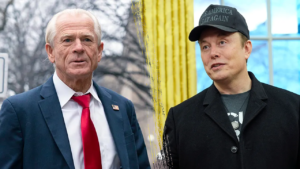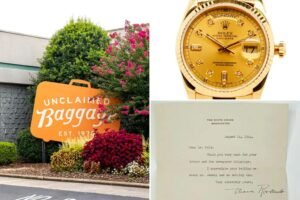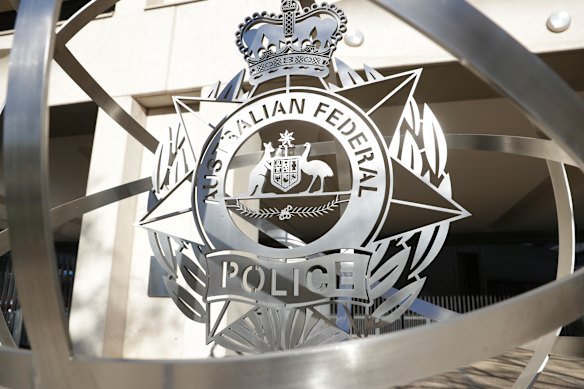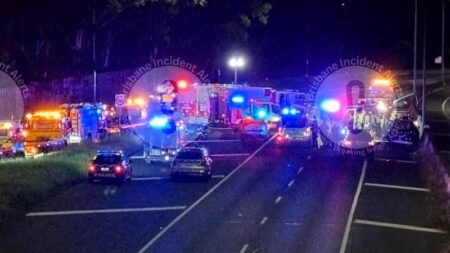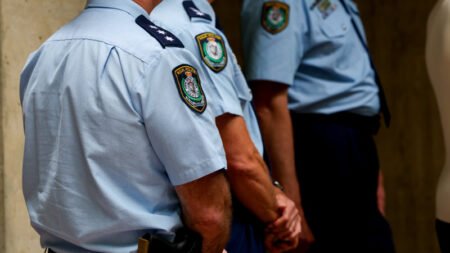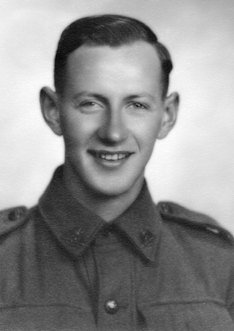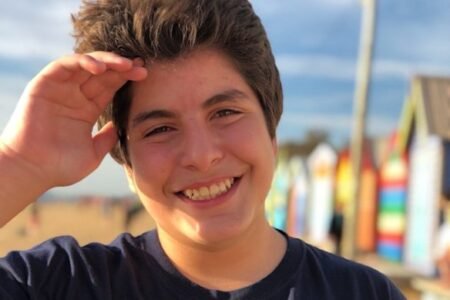“We repeatedly asked what the motivation of the person providing that information was. However, [AFP] internal policies prevented them from doing that … We were not told.”
Loading
AFP Deputy Commissioner of National Security Krissy Barrett told a federal parliamentary committee two weeks ago that her investigators also concluded the caravan threat was probably fake “almost immediately”.
Barrett reiterated that all agencies agreed to keep the caravan investigation inside the JCTT despite their doubts about the terrorism intelligence.
“While we were confident all these tip-offs were fake, we could not risk ignoring the information provided, and we kept investigating at the highest level,” Barrett told the Herald.
She said the taskforce had been “exceptionally successful” in mitigating and triaging threats and would continue to be operationally effective.
Finger-pointing after the caravan leak
However, distrust between the two organisations lingered beneath the surface during the investigation.
When The Daily Telegraph published a story about the caravan on January 29, 10 days after its discovery, the AFP suspected NSW Police outside the JCTT of leaking details of the probe.
NSW Police suspected the AFP had leaked to ABC Victoria after the public broadcaster reached out with the same information on that same day.
Either way, the story was splashed across every news site in minutes, with massive consequences for officers within the JCTT – Akca and other targets immediately went to ground.
NSW Premier Chris Minns and Hudson fronted cameras, but the AFP did not, at an emergency press conference that evening.
Over the following month, politicians and commentators amplified the terror narrative – Minns called it a “potential mass casualty event” – but both police forces quietly briefed journalists to be sceptical about the plot.
On February 10, a senior investigating officer from NSW Police met with the AFP for a briefing on the source of the terrorism intelligence.
The AFP instructed the senior investigator to sign a deed of confidentiality – in part to stem further leaks.
NSW parliamentary committee members called the precaution, and apparent lack of trust between agencies, “extraordinary”.
‘The AFP work on the basis that knowledge is power, so they will not share information.’
Senior NSW officer
Barrett told the Herald such a deed was “not uncommon” in highly sensitive investigations and that her own officers also signed the same document.
The leaks are being investigated, both agencies say.
Loading
“Operation Kissinger remains an ongoing, complex investigation,” Barrett said. “Clearly, it has overcome a number of unexpected challenges, including repeated unauthorised disclosure of information.
“These unauthorised disclosures required a necessitated change in tack in the investigation.
“Those disclosures have been referred to relevant oversight bodies.”
It was not until February 21, the NSW inquiry heard, that the AFP fully discredited its terrorism source. That same day, contentious new laws designed to crack down on protests and hate speech, including a ban on displaying Nazi symbols near synagogues or graffiti on churches, were passed in NSW parliament.
Barrett and Hudson both fronted the media on March 10 to publicly confirm the caravan plot was a hoax, almost a month after this masthead revealed terrorism had fallen away as the main theory within the JCTT.
The AFP and NSW Police insist the JCTT, comprised of officers from both entities, worked tirelessly and professionally under extreme circumstances and scrutiny.
Relations between the AFP and NSW Police are under scrutiny.Credit: Alex Ellinghausen
Privately, senior sources within the agencies are not shy about the friction outside the JCTT.
“The AFP work on the basis that knowledge is power, so they will not share information,” said one senior NSW officer, who requested anonymity to speak freely.
Speaking to the Herald, chair of the NSW parliamentary inquiry Rod Roberts said the community deserved to know there was a “harmonious relationship” between the two agencies to “ensure we are protected”.
Loading
“It’s quite apparent there has been a breakdown in communication and trust between the AFP and NSW Police Force that needs to be remedied as soon as possible,” the independent MP said.
“They need to be able to confidently share information with each other and have that trust, but that’s not happening at the moment … Hopefully, we are not subjected to another terror threat tomorrow.”
The AFP has been invited to give evidence at the inquiry and is considering the request.
Inquiry member Sue Higginson, a Greens member, said the Dural inquiry will examine whether the new hate laws were made in bad faith or on bad information.
“We pleaded with government for pause,” Higginson said.
“The government deprived us all – lawmakers and affected communities – of really important democratic safety systems.”
Start the day with a summary of the day’s most important and interesting stories, analysis and insights. Sign up for our Morning Edition newsletter.
Read the full article here

